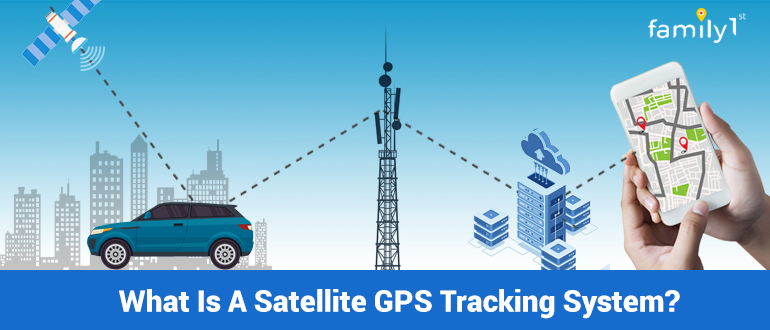How GPS Tracking Can Boost Your Organization Procedures
How GPS Tracking Can Boost Your Organization Procedures
Blog Article
Navigating the Future of GPS Monitoring: Technologies, Difficulties, and Opportunities Ahead
As we stand at the crossroads of societal effects and technological advancements, the landscape of general practitioner monitoring is poised for a transformative journey in advance. The advancement of GPS innovation has actually been fast, ushering in a brand-new age of real-time monitoring abilities that promise unmatched levels of accuracy and performance. With excellent development comes excellent duty, as information privacy worries loom huge and protection challenges in GPS tracking raising important questions regarding securing sensitive details. Yet, in the middle of these challenges lie surprise possibilities waiting to be explored, supplying a glance into the untapped capacity of a market at the brink of adjustment.
Evolution of GPS Innovation
Established for armed forces objectives, GPS technology has progressed to become a common tool in numerous sectors, including transportation, logistics, farming, and individual navigation. Early GPS systems were identified by minimal coverage, lower accuracy, and bulkier hardware needs.
One secret turning point in the evolution of GPS modern technology was the development of Careful Accessibility (SA) in the 1990s, which intentionally broke down the precision of private General practitioner signals. As General practitioner innovation proceeds to advance, we can expect additional renovations in performance, precision, and protection, opening up new possibilities for technology and applications throughout numerous sectors.
Real-Time Monitoring Advancements
Building on the developments in GPS modern technology that have actually reinvented precision and protection, real-time tracking has actually become an essential area of innovation with extensive ramifications across various fields. Real-time tracking advancements make it possible for companies and companies to check lorries, workers, and properties instantly, supplying important insights for decision-making procedures - gps tracking. By leveraging real-time information, business can improve functional performance, enhance client solution, and make sure the safety and security and security of their possessions
Among the essential developments in real-time monitoring is the integration of man-made knowledge and device knowing algorithms, which allow anticipating analytics and anomaly detection. These abilities enable positive maintenance scheduling, course optimization, and threat mitigation approaches. Additionally, the evolution of real-time radar has actually brought about the advancement of mobile applications and adjustable control panels, equipping individuals to gain access to critical information anytime, anywhere.
Information Personal Privacy Worries
Data personal privacy worries incorporate different facets, consisting of the storage space, sharing, and retention of location data. Businesses need to implement durable safety and security procedures to safeguard general practitioner monitoring data from cyber risks and data breaches. Clear plans relating to data collection practices and the function of tracking are vital to construct trust fund with customers and ensure compliance with data protection regulations.

Safety And Security Difficulties in GPS Monitoring
Resolving information privacy problems in GPS tracking is delicately linked to mitigating the safety challenges that occur from possible vulnerabilities in the modern technology. One of the main security challenges in GPS monitoring is the threat of unapproved accessibility to sensitive place data.

Another safety and security obstacle is the capacity for jamming or spoofing GPS signals. By transmitting incorrect signals or interfering with legit ones, destructive stars can deceive GPS receivers and control area information. This positions threats not only for specific customers yet likewise for governmental and army applications that depend on exact placing information. Applying robust file encryption, verification steps, and signal confirmation protocols are vital action in dealing with these safety difficulties in GPS tracking.
Arising Opportunities in the Market
The blossoming field of general practitioner monitoring technology offers a myriad More hints of encouraging possibilities for industry development and advancement. One crucial possibility lies in the growth of general practitioner monitoring applications past standard markets. Industries such as logistics, transport, and fleet administration have been early adopters of general practitioner modern technology. Arising chances are now developing in areas like healthcare, farming, and ecological tracking. For instance, GPS tracking can revolutionize individual treatment by allowing remote monitoring of vital indicators and making certain prompt medical support. In farming, GPS innovation can enhance crop administration practices and boost total yield. Ecological surveillance can profit from GPS monitoring by making it possible for real-time information collection for climate research study and preservation efforts.
An additional substantial possibility in the GPS tracking industry is the integration of sophisticated analytics and artificial intelligence. By leveraging these technologies, companies can get beneficial insights from GPS information to boost functional performance, boost decision-making procedures, and deal personalized solutions to consumers. Additionally, the enhancing demand for connected tools and IoT remedies offers a ripe possibility for general practitioner monitoring firms to expand their offerings and develop innovative services that accommodate a more connected globe. By profiting from these arising possibilities, GPS tracking companies can place themselves for sustained growth and success in the dynamic landscape of the market.
Conclusion
In final thought, the future of General practitioner monitoring is marked by continual advancement and innovation in innovation. As the industry relocates onward, navigating these obstacles will be critical to make sure the continued development and success of General practitioner monitoring modern technology.
With fantastic innovation comes excellent responsibility, as information privacy concerns loom big and safety obstacles in General practitioner monitoring raising pertinent inquiries concerning safeguarding delicate info.With the rapid spreading of GPS monitoring innovation in various sectors, attending to data privacy problems has become a crucial necessary for both companies and consumers alike. The collection of location data through GPS tracking raises significant personal privacy concerns, as it makes it possible for the monitoring of people' movements and behaviors. Services using GPS monitoring must prioritize safeguarding this data to protect against unauthorized gain access image source to or misuse that could compromise people' privacy civil liberties.
Businesses have to carry out robust safety and security measures to shield General practitioner index tracking information from cyber hazards and information violations.
Report this page